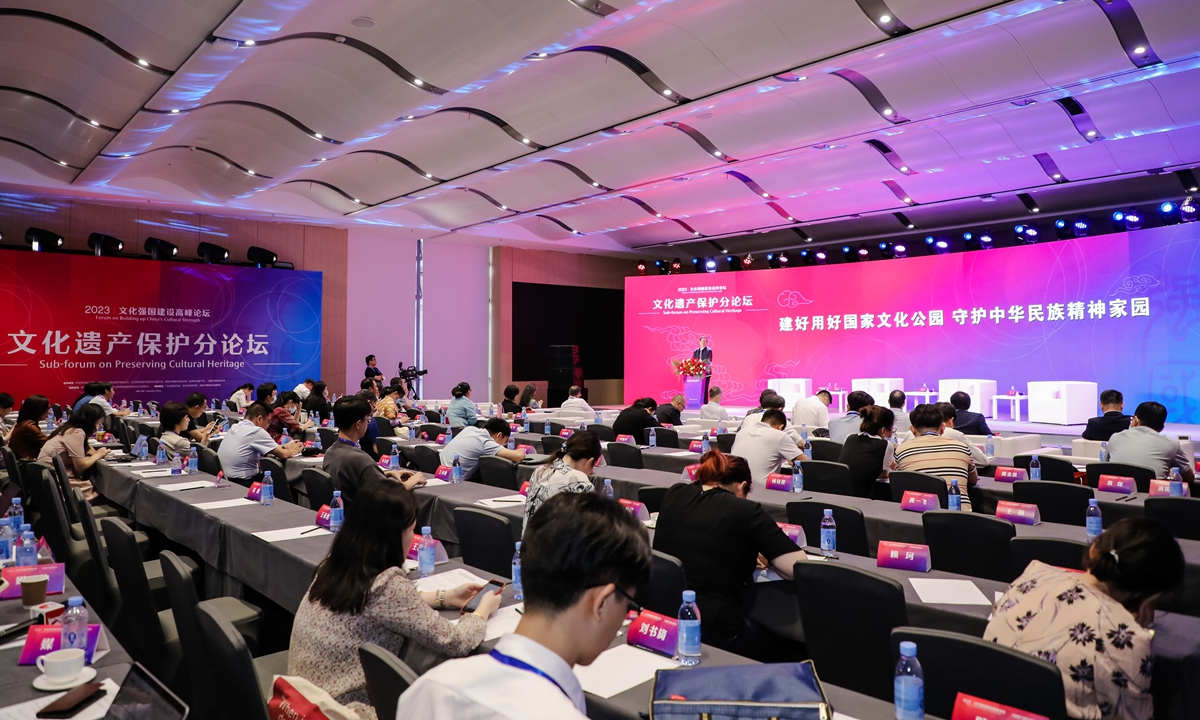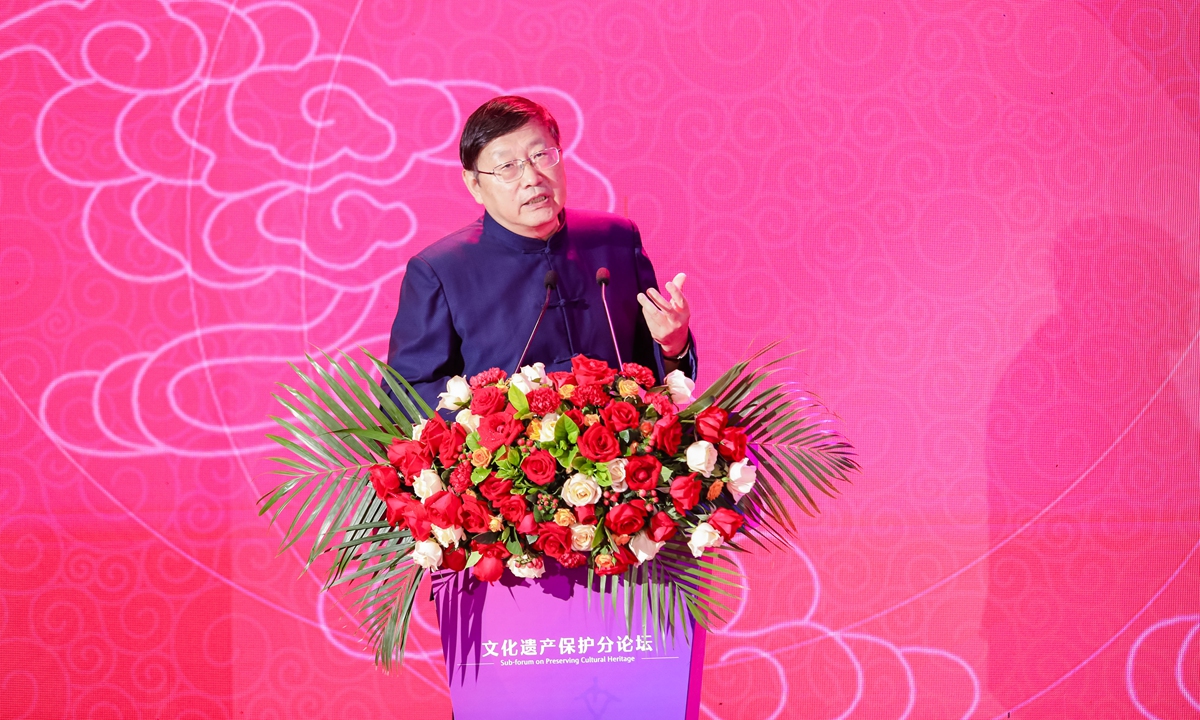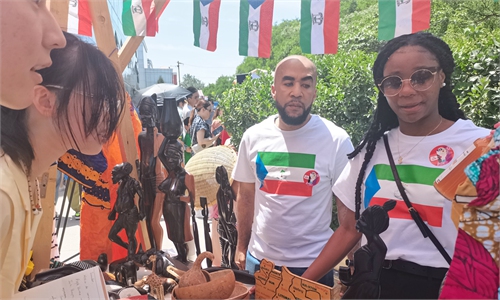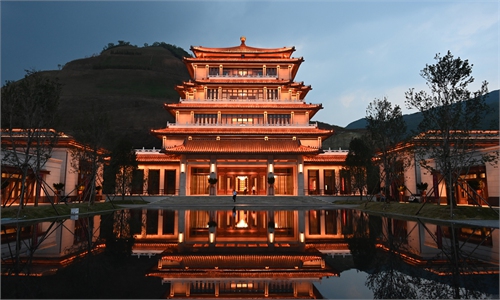ARTS / CULTURE & LEISURE
Culture forum discusses how to best support China’s continued national rejuvenation
On the rise

A sub-forum discussing the formation of Chinese civilization in the new era at the first Forum on Building up China's Cultural Strength on June 8, 2023 in Shenzhen Photo: Courtesy of the Forum on Building up China's Cultural Strength
The first Forum on Building up China's Cultural Strength opened in Shenzhen, South China's Guangdong Province on Wednesday afternoon.
Chinese President Xi Jinping sent a letter to extend his warm congratulations to the forum.
In his letter, Xi, also general secretary of the Communist Party of China Central Committee and chairman of the Central Military Commission, called for enhanced efforts to shoulder new cultural mission, and provide strong cultural and intellectual strength to build a stronger nation and achieve national rejuvenation.
Several sub-forums were launched on Thursday, at which cultural experts in different fields shared their opinions on cultural missions in the new era.
Historical origins
Attending the Thursday morning sub-forum discussing the formation of Chinese civilization in the new era, Wang Wei, director of the Chinese Academy of Social Sciences' Academic Division of History and the keynote speaker, shared his opinions on how the topic can be interpreted through recent archaeological discoveries. Wang has undertaken the national Project to Trace the Origins of Chinese Civilization for decades.
Referring to his dedicated "civilization origin" project, Wang noted that the project is an entirely new China's solution, which can share the world's archaeology with China's experience
He said that unlike traditional Western standards for "civilization" such as the attainment of metallurgy, the Chinese project examines China's origins by reviewing historical materials and looking at factors such as "production and population growth."
Wang also remarked on the project's multidisciplinary nature as it progressed through five research stages since its establishment in 2002.

Wang Wei speaks at a forum on June 8, 2023 in Shenzhen, South China's Guangdong Province. Photo: Courtesy of the Forum on Building up China's Cultural Strength
Besides Wang, other archaeologists such as Sun Zhouyong, the head of the Shaanxi Academy of Archaeology, and Gao Jiangtao, the leader of the Taosi Ruins Archaeological Project, addressed the development of modern Chinese culture, noting that it cannot be separated from the rich spiritual lives of ancient Chinese people.Sun noted that the Shimao Site, a large early Xia Dynasty (c.2070BC-c.1600BC) city ruins with a pyramid-shaped palace, reveals the architectural wisdom of ancient Chinese people. Meanwhile, over in Shanxi Province, the Taosi Ruins reveal the religious beliefs of ancient Chinese, Gao noted.
The characteristics of Chinese civilization are consistency, originality, uniformity, inclusivity and peaceful nature, Wang noted.
Similar to the archaeology session, two other panel discussions on Thursday focused on the conservation and innovative inheritance of cultural heritage.
China's culture heritage shows the rich artistic charm and unique values of its people, Lan Jing, the director of the Center for Ethnic and Folk Literature and Art Development under China's Ministry of Culture and Tourism, said at the event.
Other presenters such as Qiu Chunlin, a researcher at the Chinese National Academy of Arts, and Tang Yuyang, a veteran expert specializing in Great Wall culture, presented how world acclaimed Chinese cultural legacies like the Great Wall can be promoted with creativity.
Qiu said that innovative inheritance requires the joint efforts of the government, social organizations and the public.
Taking the Great Wall National Park as an example, Qiu noted that China has an ongoing "Culture Park" blueprint that focuses on turning national symbols such as the Yellow River and the Grand Canal into parks that can actively interact with the public and tell evocative Chinese stories.
"It isn't just archaeological and historical sites, as we move forward in the modern age, China's digital creativity can also show the country's developing cultural strength," cultural sociologist Fang Qingqiong said.
Modern culture
At the High-quality Development of the Film Industry sub-forum, Guo Fan, the director of Chinese sci-fi blockbuster series Wandering Earth, presented how he has dedicated himself to producing "heavy industrial" films of "high quality using high tech means."
Noting that a film production needs to have a certain level of "spectacle" when it comes to visuals and audio presentation in order to keep audiences intrigued, Guo emphasized that the "thoughtful" part of a Chinese film should "dive into exploring shared human faith."
"Films need to delve deeper into the grand themes such as human destiny, civilization choices and technological relationships, providing more guidance from the perspective of morality," he noted, adding that these efforts can help tell good Chinese stories.
He revealed that in the third Wandering Earth film, his team will continue to use their lens to present credible, lovely, and respectable images of China.
In accordance with the theme of "digital creativity," the ongoing 19th China (Shenzhen) International Cultural Industries Fair (ICIF) in Shenzhen also launched a sub-forum on developing technology in the field of digital publishing. The forum discussed topics such as digital publishing and Chinese online literature.



